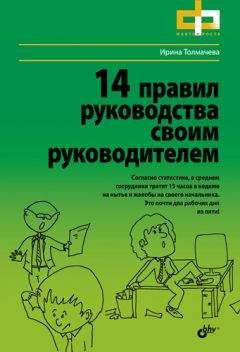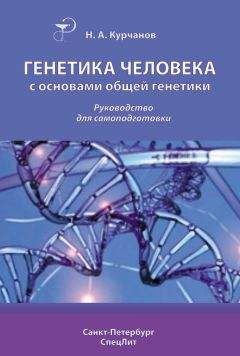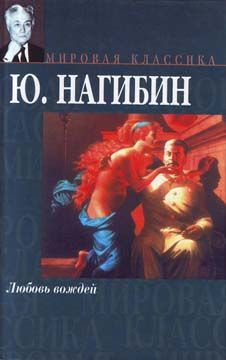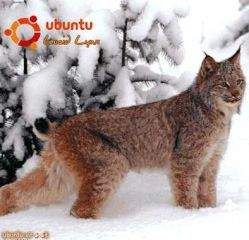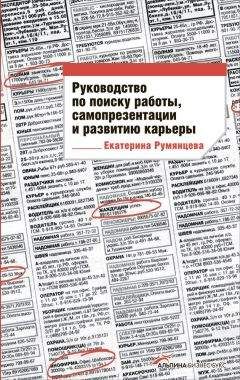Ольга Ламонова - Английский язык. Ирландские волшебные сказки / Irish Fairy Tales
Now the son of the king of Tisean [= son of king of Envy] set out from the king of Erin on the same errand, after asking for his daughter; and as soon as the cowboy drove in his cattle on the second day, he came along by the giant’s land, found the five heads of the giant thrown out by the cowboy the day before, and picking them up, ran off to the king of Erin and put them down before him.
“Oh, you have done good work (о, ты выполнил хорошую работу)!” said the king. “You have won one third of my daughter (ты завоевал мою дочь на одну треть: «завоевал одну треть моей дочери»; to win /won/ – выиграть; добиться, завоевать).”
“Oh, you have done good work!” said the king. “You have won one third of my daughter.”
Soon after the cowboy had begun to eat sweet apples (вскоре после того, как пастух начал есть сладкие яблоки; to begin /began, begun/), and the son of the king of Tisean had run off with the five heads (и сын короля Tisean [Зависти] убежал прочь с пятью головами), there came a great noise of young trees bending (раздался сильный треск: «грохот» гнущихся молодых деревьев; to come /came, come/ – идти, приходить; появляться, возникать), and old trees breaking (и ломающихся старых деревьев), and presently the cowboy saw a giant (и вскоре пастух увидел великана) larger than the one he had killed the day before (/который был/ больше, чем великан, которого он убил накануне).
Soon after the cowboy had begun to eat sweet apples, and the son of the king of Tisean had run off with the five heads, there came a great noise of young trees bending, and old trees breaking, and presently the cowboy saw a giant larger than the one he had killed the day before.
“You miserable little wretch (ты жалкий негодник; little – маленький, небольшой /о размере/; мелкий, ничтожный; wretch – несчастный, жалкий человек; негодяй, подлец)!” cried the giant (закричал великан); “what brings you here on my land (что привело тебя в мои владения: «на мою землю»; to bring – приносить; приводить /с собой/)?”
“You wicked brute (ты отвратительная скотина; wicked – грешный, порочный; злой; противный; свирепый /о животных/)!” said the cowboy, “I don’t care for you (мне на тебя плевать; to care – заботиться /о ком-л., чем-л./, ухаживать; беспокоиться, тревожиться, волноваться; I don’t care – мне все равно, мне безразлично),” and slipping down from the tree (и, соскользнув с дерева; to slip – скользить, плавно или быстро передвигаться; двигаться тихо или незаметно), he fell upon the giant (он бросился на великана; to fall /fell, fallen/ – падать; to fall upon smb. – натолкнуться на кого-л.; нападать, набрасываться, бросаться на кого-л.).
“You miserable little wretch!” cried the giant; “what brings you here on my land?”
“You wicked brute!” said the cowboy, “I don’t care for you,” and slipping down from the tree, he fell upon the giant.
The fight was fiercer than his first one (схватка была еще свирепее = яростнее, чем первая; fight – бой; драка); but towards evening (но ближе к вечеру; towards – по направлению к; указывает на приближение к определенному моменту времени: к, около), when he was growing faint (когда он начал слабеть: «становился слабее»; to grow – расти; становиться, делаться), the cowboy remembered that if he should fall (пастух вспомнил, что если он падет; to fall – падать; пасть, погибнуть), neither his father nor mother would see him again (то ни его отец, ни его мать /никогда не/ увидят его снова), and he would never get the daughter of the king of Erin (и он никогда не получит /руку/ дочери короля Ирландии).
The fight was fiercer than his first one; but towards evening, when he was growing faint, the cowboy remembered that if he should fall, neither his father nor mother would see him again, and he would never get the daughter of the king of Erin.
This thought gave him strength (эта мысль придала ему силу); and jumping up, he caught the giant (и, подскочив, он схватил великана; to catch /caught/), put him with one thrust to his knees in the hard earth (вогнал его одним ударом по /самые/ колени в твердую землю; to put – помещать, ставить, класть), with a second to his waist (вторым – по пояс: «до его талии»), with a third to his shoulders (третьим – по плечи), and then swept the five heads off him (а затем снес пять голов с его /плеч/; to sweep /swept/ – мести, подметать; уничтожать, сносить) and threw them over the wall (и бросил их через стену; to throw /threw, thrown/), after he had cut out the tongues and put them in his pocket (после того, как он вырезал языки и положил их в свой карман).
This thought gave him strength; and jumping up, he caught the giant, put him with one thrust to his knees in the hard earth, with a second to his waist, with a third to his shoulders, and then swept the five heads off him and threw them over the wall, after he had cut out the tongues and put them in his pocket.
Leaving the body of the giant (оставив тело великана; body – тело, плоть; труп), the cowboy drove home the cattle (пастух погнал стадо домой; to drive /drove, driven/), and the Gruagach had still greater trouble in finding vessels (и Груагаху было еще трудней отыскать посуду: «и Груагах имел еще большее беспокойство в отыскании сосудов») for the milk of the five golden cows (для молока пяти золотых коров).
After supper the cowboy said not a word (после ужина пастух не сказал ни слова), but went to sleep (а /просто/ пошел спать).
Leaving the body of the giant, the cowboy drove home the cattle, and the Gruagach had still greater trouble in finding vessels for the milk of the five golden cows.
After supper the cowboy said not a word, but went to sleep.
Next morning he drove the cattle still farther (на следующее утро он погнал свое стадо: «крупный рогатый скот» еще дальше), and came to green woods and a strong wall (и пришел к зеленому лесу и крепкой стене; strong – сильный; прочный, крепкий). Putting his back to the wall (прислонившись спиной к той стене), he threw in a great piece of it (он завалил вовнутрь большой кусок стены: «из нее»), and going in (и, войдя вовнутрь), threw out another piece (выбросил = завалил наружу другой кусок /стены/). Then he drove the five golden cows and the bull without horns to the land inside (затем он загнал пять золотых коров и быка без рогов на эту землю: «на землю внутри /стены/»), ate sweet apples himself (/и стал/ есть сладкие яблоки сам), and threw down sour ones to the cattle (и бросать кислые вниз скотине).
Next morning he drove the cattle still farther, and came to green woods and a strong wall. Putting his back to the wall, he threw in a great piece of it, and going in, threw out another piece. Then he drove the five golden cows and the bull without horns to the land inside, ate sweet apples himself, and threw down sour ones to the cattle.
The son of the king of Tisean came (/тут/ пришел сын короля Tisean [Зависти]) and carried off the heads as on the day before (и унес головы, как и накануне).
Presently a third giant came crashing through the woods (вскоре и третий великан появился, прогрохотав через лес; crash – грохот; to crash – падать, рушиться с грохотом; удариться с грохотом /обо что-л./, наскочить /на что-л./), and a battle followed (и /за этим/ последовала битва; to follow – следовать, идти /за кем-л., чем-л./; следовать за, наступать после) more terrible than the other two (более ужасная, чем две предыдущие: «другие две»).
The son of the king of Tisean came and carried off the heads as on the day before.
Presently a third giant came crashing through the woods, and a battle followed more terrible than the other two.
Towards evening the giant was gaining the upper hand (ближе к вечеру великан стал брать верх; towards – к; to gain – получать, приобретать; upper – верхний, высший; hand – рука, кисть руки; to gain the upper hand – одержать победу, одолеть, взять верх), and the cowboy, growing weak, would have been killed (и пастух, /который/ все больше слабел: «становясь слабым», был бы убит; to grow – расти; становиться, делаться); but the thought of his parents and the daughter of the king of Erin gave him strength (но мысль о своих родителях и дочери короля Ирландии придала ему силы), and he swept the five heads off the giant (и он снес пять голов с /плеч/ великана), and threw them over the wall (и бросил их через стену) after he had put the tongues in his pocket (после того, как он сложил языки в свой карман).
Towards evening the giant was gaining the upper hand, and the cowboy, growing weak, would have been killed; but the thought of his parents and the daughter of the king of Erin gave him strength, and he swept the five heads off the giant, and threw them over the wall after he had put the tongues in his pocket.
Then the cowboy drove home his cattle (затем пастух погнал домой свой скот); and the Gruagach didn’t know what to do (и Груагах не знал, что же делать) with the milk of the five golden cows (с молоком пяти золотых коров), there was so much of it (так много его было).
But when the cowboy was on the way home with the cattle (и вот когда пастух шел домой со своим стадом: «был на пути с крупным рогатым скотом»), the son of the king of Tisean came (пришел сын короля Tisean [Зависти]), took the five heads of the giant (взял пять голов великана), and hurried to the king of Erin (и поспешил к королю Ирландии; to hurry).
Then the cowboy drove home his cattle; and the Gruagach didn’t know what to do with the milk of the five golden cows, there was so much of it.
But when the cowboy was on the way home with the cattle, the son of the king of Tisean came, took the five heads of the giant, and hurried to the king of Erin.
“You have won my daughter now (теперь ты завоевал мою дочь; to win /won/ – выиграть; добиться, завоевать),” said the king of Erin (сказал король Ирландии) when he saw the heads (когда он увидел головы); “but you’ll not get her unless you tell me (но ты ее не получишь, пока не расскажешь мне) what stops the Gruagach Gaire from laughing (что же мешает Смеющемуся Груагаху смеяться; to stop – останавливать, задерживать; удерживать, останавливать, мешать, не давать).”
